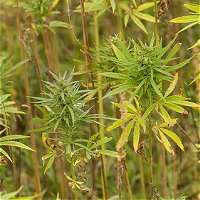Land in the Italian city of Taranto has been poisoned by its steel industry. An attempt is being made to decontaminate some of it with industrial hemp.
Taranto is a coastal city in Apulia, Southern Italy. It has been heavily dependent on a local steel plant for decades. At its peak, the plant employed 40,000 people.
This employment has come at a very price. High levels of lead and carcinogenic dioxins were detected in people living nearby and more than 11,000 residents have reportedly died from the effects of the factory.
While there have been prosecutions resulting from the contamination, the legacy remains – and will do for a long time. The agricultural sector has suffered greatly and the farmers who remain are not permitted to graze their animals within a 19 kilometre radius of the steel plant.
But not all Taranto’s farmers have given up on their land.
Slate reports on local farmers’ efforts to grow industrial hemp in order to absorb toxic substances from the soil and neutralize them.
While hemp plants grown for such a purpose can’t be used for food or fodder, they can be utilised for fuels, insulation, construction materials, paper, textiles, and composite materials. It’s a clean-up crop that’s also a cash crop.
Italy is no stranger to hemp – it was a major crop in the country for hundreds of years; grown for its fibre. At one point, Italy was the world’s second-largest hemp producer.
While hemp fibres fell out of favour decades ago due to the introduction of synthetics, it’s encouraging to see the plant make a comeback and addressing such an important issue.
Hemp has successfully been used for phytoremediation for some time in various parts of the world.
The plant has been grown in the area around the abandoned Chernobyl nuclear power plant in Pripyat, Ukraine for many years and has proven to be one of the best phytoremediative plants tried.
Japan is currently considering growing industrial hemp in the Fukushima area to help with decontamination.
Previous studies have shown hemp is able to thrive in soils with high levels of heavy metals without having a marked impact on plant growth, yield or fibre quality.


